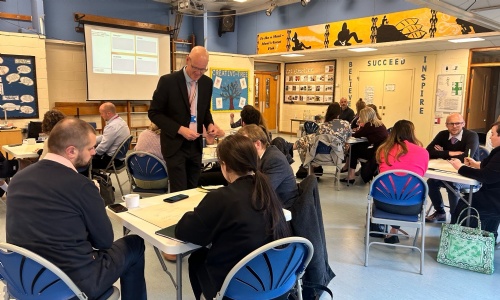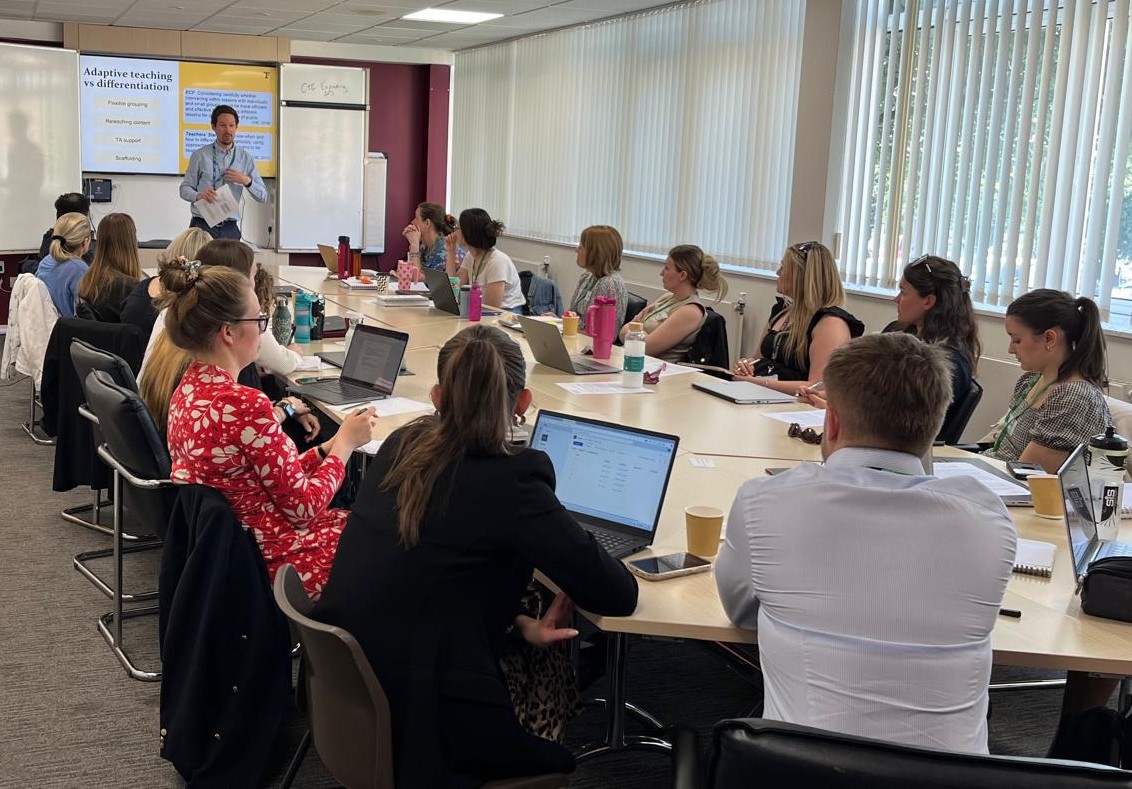A Year of Growth, Reflection & Connection: Highlights from the Saffron Early Career Programme 2024–25

As the 2024–25 academic year draws to a close, Saffron Teaching School Hub's Early Career Programme community has much to celebrate. Through training sessions, mentoring conversations, and reflective practice, ECTs and their mentors have shared a journey filled with insight, inspiration, and professional growth.
What We Learned
Across the year, several themes emerged as particularly impactful for both ECTs and mentors.
The Power of Praise
- One of the most frequently mentioned takeaways was the importance of precise praise and acknowledgement. Teachers reflected on how targeted, meaningful feedback can shape classroom culture and boost pupil confidence. Many spoke about learning to distinguish between general encouragement and praise that truly reinforces learning behaviours.
- “Different ways of using praise were thought-provoking, and some things I will try out in my classroom.”
Wellbeing Matters
- Wellbeing wasn’t just a buzzword—it became a cornerstone of the programme. ECTs highlighted how sessions helped them reflect on their own mental health and work-life balance, with many committing to small but significant changes like wellbeing walks, mindfulness breaks, and clearer boundaries.
- “Staff wellbeing conversations were really useful and a good time to reflect on practice and how to support my ECT.”
Instructional Coaching in Action
- Mentors embraced the instructional coaching model, with its emphasis on deliberate practice and actionable feedback. The idea of setting small, high-leverage goals resonated strongly, helping mentors support their ECTs with clarity and purpose.
- “The facilitator was lovely and used memorable analogies. I will be taking both her approach and strategies back to the classroom with me.”
Building Thinking Classrooms
- From critical thinking to curriculum design, ECTs explored how to deepen pupil understanding. Strategies like dual coding, concept cartoons, and retrieval practice were popular tools, helping teachers make learning stick and encourage independent thinking.
- “I learnt a lot about the use of questioning which is my target for this half term, so it has been super helpful!”
Assessment with Purpose
- Sessions on formative assessment and feedback gave teachers practical tools to check understanding and adapt their teaching. Many ECTs left with a renewed focus on questioning techniques, peer assessment, and using rubrics to guide learning.
- “I now understand more about rubrics and how to use them with peer assessment – this can be a game-changer.”
Mentoring That Makes a Difference
- Mentors played a pivotal role this year, not only guiding their ECTs but also reflecting on their own practice. Many appreciated the opportunity to connect with peers, share experiences, and refine their approach to mentoring. The emphasis on wellbeing, resilience, and professional dialogue helped mentors feel more confident in supporting their colleagues through the highs and lows of early career teaching.
- “The two facilitators were excellent. They kept it relevant, realistic and enjoyable.”



Looking Back and Looking Ahead
On 29 May 2025, the DfE published the final Early Career Framework induction evaluation report. The evaluation followed participants (induction tutors, mentors and ECTs) in the first cohort over the two years of their induction programme, using both quantitative and qualitative research methods. It explored decision-making, experiences of different models for ECF-based induction, what worked well and less well, outcomes and early signs of impact, and lessons for delivery and national policy development.
The annual summary (Year 3) report summarises the key findings from the third (and final) year of this evaluation, and the summary report summarises the key findings from across the full evaluation, which we are pleased to see correlate with the feedback from our programme members.
Highlights of these findings include:
- Increased confidence from ECTs as well as increased job satisfaction and motivation – with leaders in schools agreeing that they can identify improvements.
- Opinions are improving over time in the sector, and this highlights how the DfE and its delivery agents have listened to concerns and feedback and have taken action, whilst working to protect the quality of the programme, fidelity to the framework and the integrity of the mentor offer.
- Early and promising signs of improved teacher retention. Analysis conducted by DfE analysts suggests that cohorts 1 and 2 of the national roll-out of ECF-based induction have higher retention than expected when accounting for key characteristics and wider trends in teacher retention.
Looking ahead to 2025-26
Saffron Teaching School Hub's Early Career Programme continues to evolve, shaped by the voices of those who take part. This year’s feedback has shown just how powerful it is when teachers are given the space to reflect, connect, and grow together. We look forward to continuing this work with ECTs and mentors next year.
